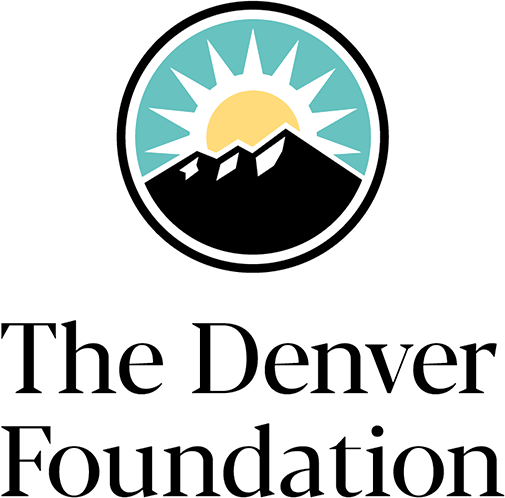Advancing Equity: Case Studies from Community Foundations Across the Country


CFLeads and Public Equity Group (PEG) began collaborating in 2022 to document the equity journeys of 13 community foundations that participated in the CFLeads Racial Equity Network (2017-present). Convened by CFLeads, a national network of community foundations, the Racial Equity Network aims to build the collective capacity of community foundations interested in advancing equity. While each organization’s equity journey is unique, there are common strategies driving success, similar lessons learned along the way, and shared challenges that the philanthropic sector as a whole must reckon with.
Community Foundations as Leaders of Place-Based Equity Work summarizes the journeys of these 13 community foundations and outlines common themes and best practices. Read the report below, and continue down the page to explore each individual community foundation racial equity journey.
The Community Foundation of Greater Dubuque was founded in 2003. Over the past twenty years, under the leadership of President and CEO Nancy Van Milligen, the Foundation has grown to support over 300 nonprofit partners with the help of over 4,000 donors. In 2022, the Foundation had total assets of $132 million (including $15 million in gifts received that year), awarded 2,400 grants for a total of $5.7 million, and had awarded a total of nearly $66 million since inception.
Equity work began as soon as the Community Foundation of Greater Flint was founded in 1988. The Foundation used both the water crisis of the 2010s and the COVID-19 pandemic to strengthen its equity work and has intensified its focus on equity in every strategic planning process since 2014, buoyed by the support of a proactive board of trustees.
The Community Foundation of Western Massachusetts has been focused on equity since the development of its 2020 strategic plan, which sets a goal of advancing equity and opportunity for all. The journey started internally, with efforts to diversify staff and board, and build an equity-focused internal culture. Subsequently, the Foundation turned its attention to making its grantmaking, scholarship programs, and donor-facing work more accessible and inclusive.
The Community Foundation Santa Cruz County has been on a committed equity journey since updating its mission, vision, and values statements in 2018. Among other actions, the Foundation has established an equity-focused granting initiative called “Rise Together,” which prides itself on community-led grantmaking. To align its racial equity goals, the Foundation has developed a tracker tool which measures progress against goals and helps hold the Foundation accountable to its commitments.
Collaboration with CFLeads was key to incorporating equity values and issues into the work of the Jackson Community Foundation (JCF). Participation in CFLeads Community Leadership and Equity Network cohorts in 2015 and 2018, respectively, led JCF to sensitize its board to the need to address equity within the community, and then make changes to its grantmaking practices.
Rochester Area Community Foundation has been focused on equity for more than a decade, but that focus has intensified in recent years. The Community Foundation is deeply committed to using data to measure racial disparities and to spark productive community conversations. In its grantmaking, the organization uses its understanding of regional disparities to support specific groups and push for systems change.
The San Antonio Area Foundation, fueled by disparities across its service area and the largest donation ever made to a community foundation in 2015, used the opportunity to address equity issues unique to its community. The Area Foundation’s focus on equity resulted in a shift in grantmaking principles and a sea change in board members’ willingness to confront equity within and outside of the Foundation.
The Saint Paul & Minnesota Foundation is on a continuing journey to center equity in its work. This journey has been particularly crucial and intense given the murder of George Floyd and other recent traumas in the Saint Paul region. The Saint Paul & Minnesota Foundation has placed particular emphasis on community leadership, narrative change, and overhauling internal operations so that principles of equity remain central.
The Denver Foundation centers racial equity as its guiding principle and aims to create a racially equitable Metro Denver in terms of leadership, prosperity, and culture. Programmatically, the Foundation has prioritized community-led grantmaking, specifically supporting Black, Indigenous or People of Color (BIPOC) -led organizations and simplifying the grant application process. Internally, the Foundation has made changes to attract a more diverse staff, such as removing educational requirements and including salaries in job postings. Racial equity is deeply embedded in the Foundation’s culture, with staff being evaluated on their contributions to racial equity and engaging in organization-wide learning initiatives.
In a region experiencing significant racial disparities, the Greater Milwaukee Foundation (GMF) has been dedicated to advancing racial equity and inclusion for the past twenty years. GMF’s equity journey intensified in 2010, with the explicit prioritization of racial equity as a guiding principle for all of the organization’s work. Since then,GMF has focused its grantmaking on equity initiatives, applied a racial equity lens to its investments, and encouraged greater diversity and inclusion among local nonprofit leadership.
The San Francisco Foundation (SFF) embarked on an equity journey in response to data showing growing racial and economic disparities in the Bay Area. Recognizing the need to address these inequities, SFF developed a new strategy centered on racial and economic equity. The strategy, called “People, Place, and Power,” aimed to advance the economic security of people of color, anchor neighborhoods for all residents, and ensure political voice for marginalized communities. SFF based its strategy on data analysis and community input, engaging in extensive community listening sessions. The Foundation also underwent an internal equity journey, focusing on reshaping its operations and culture around principles of equity.
Stay tuned for updates about CFLeads’ upcoming racial equity work!









